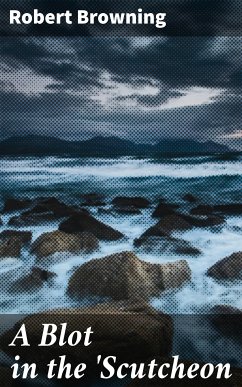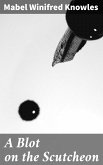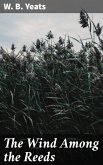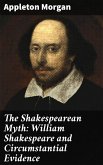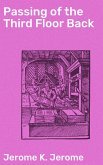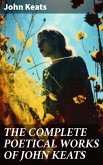In Robert Browning's poignant drama, "A Blot in the 'Scutcheon," the tumultuous interplay of honor and moral conflict come to life through the tragic story of a noble family's fall from grace. Employing Browning's signature mastery of dramatic monologue, the characters reveal their inner turmoil and complex motivations, skillfully interweaving themes of love, betrayal, and the destructive power of societal expectations. Set against the backdrop of Victorian England, the play reflects contemporary anxieties about reputation and the burdens of lineage, explored through rich, lyrical dialogue and a carefully constructed plot that unravels the characters' fates with tragic inevitability. Robert Browning, a leading figure of the Victorian poetic renaissance, sought to push societal boundaries through his works. His deep engagement with themes of morality, psychology, and human emotion is rooted in his own experiences, including his marriage to the poet Elizabeth Barrett Browning, which served to hone his understanding of love and sacrifice. "A Blot in the 'Scutcheon" represents Browning's exploration of personal and social ethics, demonstrating his adeptness at blending intense emotion with dramatic structure. For readers who appreciate profound emotional depth coupled with complex characterizations, "A Blot in the 'Scutcheon" is an essential work. Browning invites the audience to grapple with moral ambiguity, engaging them in a timeless conversation about the costs of honor and the price of love. This play is not only a vital piece of Browning'Äôs oeuvre but also a significant contribution to the landscape of Victorian literature, making it a must-read for enthusiasts of drama and poetry alike.
Dieser Download kann aus rechtlichen Gründen nur mit Rechnungsadresse in A, B, BG, CY, CZ, D, DK, EW, E, FIN, F, GR, H, IRL, I, LT, L, LR, M, NL, PL, P, R, S, SLO, SK ausgeliefert werden.

